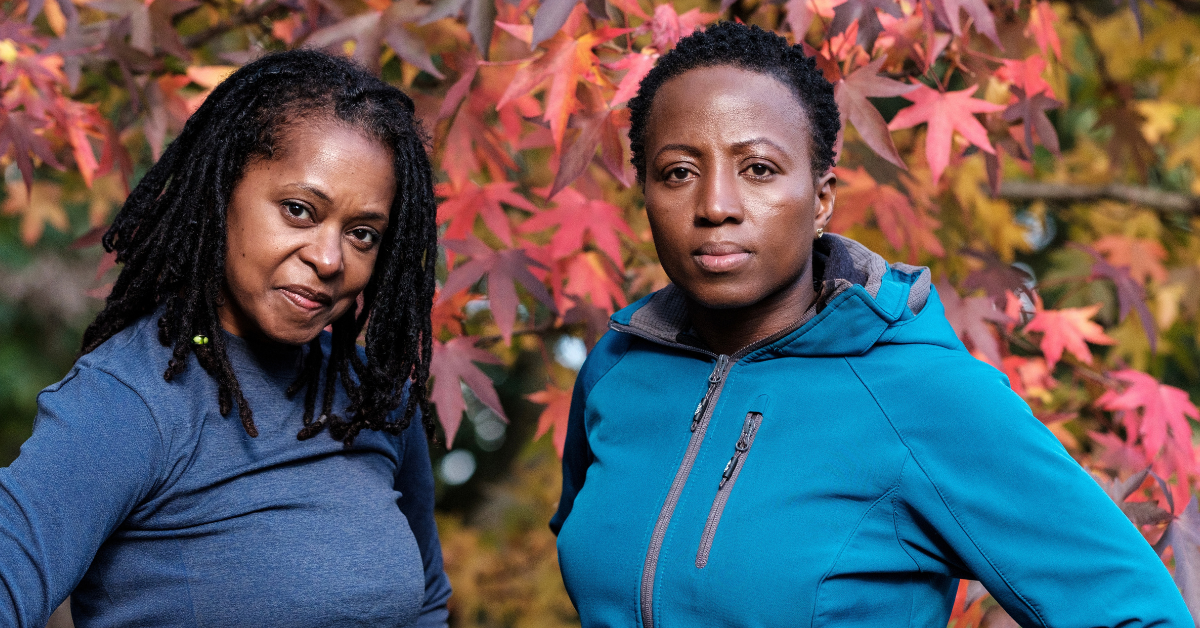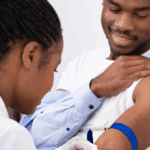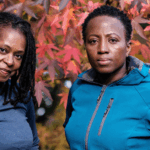The phone rings, and the world shrinks to a single word: cancer. For a Black woman, this diagnosis often arrives with an added layer of complexity, a silent weight of knowing that this fight is not just against an aggressive condition, but also against a system that has historically failed her.
HER2-positive (HER2+) breast cancer is one of the most aggressive subtypes of the condition, defined by an abundance of the HER2 protein on the surface of cancer cells, which acts like a constant “on” switch, driving rapid growth. But thanks to a revolution in targeted therapies, what was once a grim diagnosis is now a treatable, and often beatable, condition.1
However, the medical advancements that have transformed outcomes for many have not been equally distributed. Across the nation, Black women with HER2+ breast cancer are more likely to be diagnosed at a later stage, receive suboptimal care, and ultimately, face a higher mortality rate than their white counterparts.2
This isn’t a matter of biology; it’s a matter of justice. The data is clear: our health journeys are profoundly shaped by systemic racism and persistent inequality. But a diagnosis is not a destiny. This article explores these truths to equip us with the knowledge to advocate for a future where every woman has an equal chance at survival.2
The Diagnosis
For decades, there has been a false narrative that triple-negative breast cancer is the primary type affecting Black women. While triple-negative breast cancer is indeed more common in this community, the reality is that the most frequently diagnosed subtype is still hormone receptor-positive, followed by HER2+.3 This misconception can create a dangerous blind spot, leading to a lack of awareness and a slower path to diagnosis.3
The journey from a lump to a diagnosis is fraught with barriers. Many Black women, especially those in underserved communities, face limited access to regular mammogram screening. When they do seek care, they may encounter implicit bias from healthcare providers who are less likely to offer aggressive screening or who may dismiss their symptoms until the condition is more advanced. This delay in diagnosis is critical.2
A tumor found at an early stage has a much better prognosis than one discovered after it has spread. For a Black woman, a late-stage diagnosis of HER2+ breast cancer is not a random occurrence; it is often the predictable outcome of a system that fails to see, hear, and prioritize her health.2
When the Best Care Isn't an Option
The treatment for HER2+ breast cancer is a prime example of modern medicine’s triumph. Drugs like trastuzumab, pertuzumab, and antibody-drug conjugates (ADCs) specifically target the HER2 protein, acting like a guided missile to destroy cancer cells while leaving healthy ones intact. These therapies, when combined with chemotherapy, have dramatically improved survival rates.4
Yet, this life-saving protocol is not a given for every person. For many Black women, systemic barriers act as a never-ending obstacle. The demanding schedule of infusions and follow-up appointments, often lasting for a year or more, becomes impossible for those without reliable transportation, flexible work hours, or stable childcare.4 Additionally, the financial burden, even with insurance, can be staggering. We know from research that Black women are less likely to receive these critical targeted therapies, and a significant part of that gap is driven by socioeconomics.2
This treatment disconnect is also fueled by a lack of trust and communication with healthcare providers. Implicit bias can lead to less thorough discussions about all available treatment options, including the possibility of a second opinion or participation in a clinical study. The historical abuse of Black people in medical research has created a deep-seated and valid mistrust, which must be acknowledged and addressed. Without a concerted effort to build trust and provide patient-centered, culturally competent care, we risk leaving the most vulnerable behind.2
Survivorship & Long-Term Health
The fight against HER2+ breast cancer doesn’t end with the final infusion. Survivorship presents its own unique challenges, and once again, racial disparities are evident. One of the most significant concerns with HER2-targeted therapy is a potential for cardiotoxicity, which is the damage to the heart and/or cardiovascular system (including heart valves and vessels) that can occur during or after cancer treatment damage to the heart muscle.5
Black women, on average, have a higher prevalence of pre-existing cardiovascular (heart) conditions, such as hypertension (high blood pressure) and heart disease. This makes them particularly susceptible to the side effects of these life-saving drugs. Without proactive and constant monitoring, a Black woman could trade a cure for breast cancer for a new, life-threatening heart condition. It is an unacceptable trade-off that highlights the necessity for integrated, holistic care.5
How to Advocate for Yourself & Your Community
Navigating this complex landscape requires both individual courage and collective action. Here are some actionable steps you can take to empower yourself or a loved one:
- Be Your Own Advocate: You have the right to ask questions and demand answers. When you receive a HER2+ diagnosis, ask for a detailed explanation of your treatment plan, the potential side effects, and how your cardiac health will be monitored.6
- Seek a Second Opinion: A second opinion is not a sign of distrust; it’s a standard part of high-quality cancer care. It can confirm your diagnosis and treatment plan or offer a different perspective.6
- Demand Transparency about Clinical Studies: Ask your oncologist if there are any clinical studies you might be eligible for. The research community needs our voices and our bodies to ensure health equity for all.6
- Leverage Your Community: This is why platforms like NOWINCLUDED exist. Here, you can connect with other Black women who have walked this path, share stories, and find the resources and emotional support you need to fight.
A Call to Action
The tools to defeat HER2+ breast cancer are here. The path to a healthier future is not shrouded in mystery—it’s blocked by systemic racism and inequality.
By refusing to accept disparities as inevitable, by demanding equitable access to care, and by lifting up the voices of Black women, we can dismantle the barriers that stand between us and true health. This is a fight we can, and must, win together.
References
- ACS. (2025, January 29). American Cancer Society. Retrieved from American Cancer Society: https://www.cancer.org/cancer/types/breast-cancer/understanding-a-breast-cancer-diagnosis/breast-cancer-her2-status.html
- Williams, D. R., Mohammed, S. A., & Shields, A. E. (2017). Understanding and Effectively Addressing Breast Cancer in African American Women: Unpacking the Social Context. Cancer. doi: 10.1002/cncr.29935
- DePolo, J. (2022, March 8). Molecular Differences in Breast Cells May Partially Explain Why Black Women Have Higher Breast Cancer Mortality. Retrieved from Breastcancer.org: https://www.breastcancer.org/research-news/molecular-differences-in-breast-cells-affect-black-womens-mortality
- Chen, L., & Li, C. (2024). Racial disparities in breast cancer diagnosis and treatment by hormone receptor and HER2 status. Cancer Epidemiology, Biomarkers & Prevention. doi:10.1158/1055-9965.EPI-15-0293
- Dent, S. F., Morse, A., Burnette, S., Guha, A., & Moore, H. (2021). Cardiovascular Toxicity of Novel HER2-Targeted Therapies in the Treatment of Breast Cancer. Current Oncology Reports. doi: 10.1007/s11912-021-01114-x
- Know Your Girls. (2025). United we thrive: How to support breast health in your community. Retrieved from Know Your Girls: https://knowyourgirls.org/resources/how-to-support-breast-health-in-your-community/








